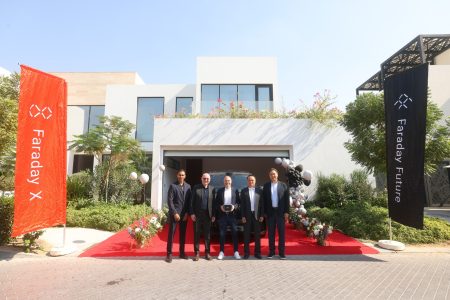Summarize this content to 2000 words in 6 paragraphs in Arabic Unlock the Editor’s Digest for freeRoula Khalaf, Editor of the FT, selects her favourite stories in this weekly newsletter.Supremacy, Parmy Olson’s timely and in-depth exploration of the rivalry between the founders of artificial intelligence companies OpenAI and Google DeepMind, has won the Financial Times and Schroders Business Book of the Year Award.The book is the fourth winner in the past five years of the prize to focus on technology and the business, economic, social and geopolitical implications of the sector’s rapid expansion.Olson received the £30,000 prize at a dinner in London on Thursday, which also celebrated 20 years of the prestigious award.Thomas Friedman’s paean to globalisation, The World is Flat, was the first winner in 2005. Since then, FT editor Roula Khalaf told invited guests, “much has changed . . . From globalisation to de-globalisation, from the first digital revolution to the AI age. Our understanding of capitalism and markets has evolved too, and our attention to the political economy has intensified [but] the book award marches on.” In Supremacy, Bloomberg columnist Olson focuses on the competition between Demis Hassabis, co-founder of DeepMind, and Sam Altman, his counterpart at OpenAI. Khalaf, who chaired the judging panel, said Olson “brilliantly frames the development of artificial intelligence as a thrilling race to master the technology, build a business, and dominate the technological future”. The book also explores the tension between the entrepreneurs’ initial lofty ambitions to ensure AI serves the world, and the commercial pressures exerted by their deep-pocketed backers, Google and Microsoft.Schroders’ former chief executive Peter Harrison, another judge, said the book provided “deep insights into the defining technology of our age that are impossible to find elsewhere”.Previous winners of the award, which is also supported by FT owner Nikkei, include Amy Edmondson last year for Right Kind of Wrong, about how to learn from failure and take better risks, Chris Miller’s Chip War in 2022, about the global battle for semiconductor supremacy, and Nicole Perlroth’s This Is How They Tell Me the World Ends, on the cyber arms race, in 2021. The other 2024 finalists were: The Corporation in the Twenty-First Century, by John Kay, about the impact on the corporation of the shareholder value obsession, the knowledge economy and the digital and services revolution; Tribal, by Michael Morris, on tribalism as a potentially positive force; Andrew Scott’s The Longevity Imperative, which proposes an “evergreen agenda” to help us make the most of healthier, longer lives; Unit X, in which Raj Shah and Christopher Kirchhoff examine how technology is changing modern warfare; and Growth, Daniel Susskind’s analysis of the tension between the world’s obsession with growth and other societal priorities. Each shortlisted book receives £10,000.The other judges of this year’s award were Mimi Alemayehou, founder and managing partner, Semai Ventures; Daisuke Arakawa, managing director, Nikkei; Mitchell Baker, executive chair, Mozilla Corporation; entrepreneur and angel investor Sherry Coutu; Mohamed El-Erian, president, Queens’ College, Cambridge and adviser, Allianz, and Gramercy chair; James Kondo, chair, International House of Japan; Randall Kroszner, economics professor at University of Chicago’s Booth School of Business; and Shriti Vadera, chair of Prudential and the Royal Shakespeare Company.For more on this year’s award and previous winners, visit www.ft.com/bookaward
rewrite this title in Arabic Parmy Olson wins FT and Schroders Business Book of the Year
مقالات ذات صلة
مال واعمال
مواضيع رائجة
النشرة البريدية
اشترك للحصول على اخر الأخبار لحظة بلحظة الى بريدك الإلكتروني.
© 2026 جلوب تايم لاين. جميع الحقوق محفوظة.








